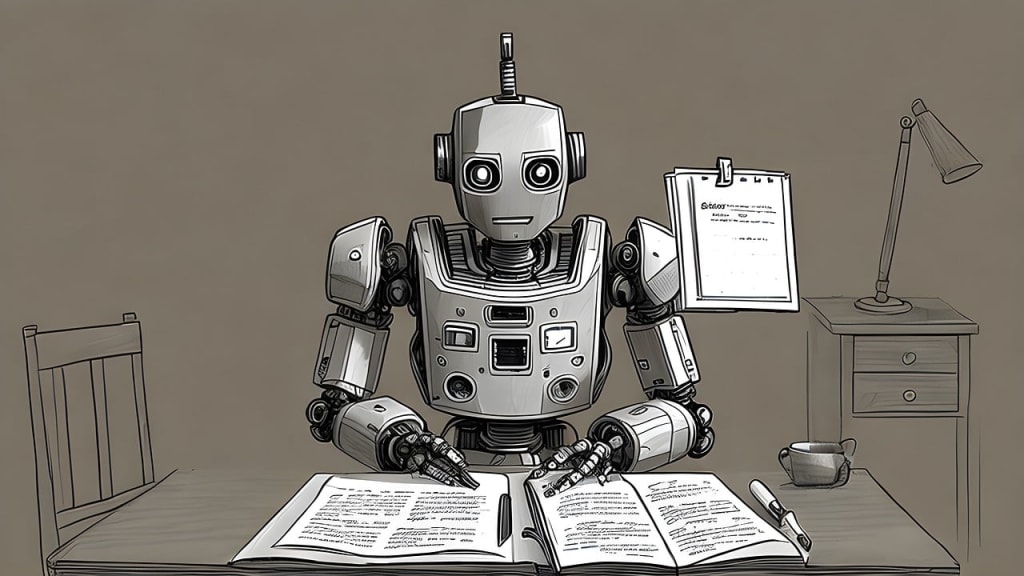The Effects of AI on the Publishing Industry: How to Publish a Book
A Comprehensive Guide for Authors: Embracing AI's Influence in Book Publishing

Artificial intelligence (AI) has revolutionized numerous industries, including publishing, in the quickly evolving technological world. Aspiring writers looking to learn how to publish a book can now utilize AI to their advantage throughout the entire publishing process. From the creation of their manuscript to its publication and consumption, AI technology is transforming the journey of getting a book published. In this piece, we will examine how AI is altering the publishing industry for the benefit of writers, publishers, and readers.
AI developments are revolutionizing the writing process and providing authors with essential tools to aid in getting their works published. Thanks to powerful Natural Language Processing (NLP) algorithms, AI can now generate concepts, plot ideas, and even draft language. AI writing assistants review previously written texts, identify trends, and provide applicable comments to help writers' work become more clear and more original. With the help of these AI-powered tools, authors may strengthen their manuscripts and overcome narrative difficulties, increasing the likelihood that their books will be accepted for publication.
• software editing and proofreading
AI-driven editing and proofreading tools have become vital partners in the journey of how to publish a book. These innovative algorithms have radically changed the traditional editing process by identifying grammar and spelling errors, suggesting various sentence patterns, and offering style advice. By leveraging these AI-powered tools, authors can speed up the editing procedure, save time and effort, and ensure that their written work is accurate and coherent. With the assistance of AI-driven editing and proofreading tools, authors can refine their writing to meet the strict standards of the publishing industry, increasing their chances of successfully publishing a book.
• Data-Driven Publishing Decisions
Publishers use AI more and more to make data-driven decisions about how to publish a book. AI algorithms look at a lot of data, including reader reviews, social media conversations, and sales statistics, to provide important insights about book purchases, market trends, and audience preferences. By harnessing the capabilities of AI, publishers can identify future bestselling genres, niche markets, and new trends. Using this data-driven approach, publishers may organize their library, align it with consumer demand, and choose which books to publish. When publishers employ AI as a strategic tool to gain an advantage in the shifting publishing landscape, the chances of success for both authors and publishers are increased.
• Personal Favorite Reading List
Thanks to AI algorithms, the process of recommending books to readers is evolving. Individualized book recommendations are provided by AI-powered recommendation systems that look at user reading preferences, browsing history, and demographic data. This tailored approach enhances the reading experience by introducing readers to new authors and genres that suit their tastes. AI algorithms' personalized recommendations increase reader engagement and book sales. Through the power of AI, readers can go on literary adventures that appeal to their own inclinations, forging stronger bonds with books and the delight of reading.
• Enhanced Book Marketing and Discoverability
AI is revolutionizing book advertising and discoverability, which is a crucial step in the publishing process. Artificial intelligence-powered systems look at market trends, reader behavior, and social media dialogues to evaluate potential target groups for certain books. Publishers may create targeted marketing campaigns, produce book covers and descriptions that are optimized, and make sure that promotional efforts are focused on the right consumers and include useful information. Publishers are better able to negotiate the complicated world of book marketing with the aid of AI, connecting authors and their works with the appropriate readers.
• AI-powered content curation
AI algorithms play a significant role in how to publish a book by curating and recommending pertinent articles, essays, and blog entries that enhance the reading experience. By considering readers' interests, preferences, and the content of the book, AI algorithms expertly choose extra materials that are pertinent to the book's topic. The carefully chosen information invites readers to learn more and conduct related research, deepening their engagement with the written material. With AI-driven book recommendations, readers are provided with a curated selection that enhances their overall reading experience and provides a deeper understanding of the context and ideas of the book.
• Intelligent Formatting and Book Design
AI-based tools provide helpful insights for book design and layout. Automated tools assess a book's content using machine learning algorithms to recommend appropriate fonts, page layouts, and formatting options. These AI-powered solutions reduce production costs, streamline the publication workflow, and save time and effort. AI ensures dependable and eye-catching book designs, enhancing the reading experience and enhancing the book's overall aesthetic appeal. With AI as a creative partner, the process of book formatting and design becomes more efficient, affordable, and visually appealing.
• Moral and legal considerations
The continued transformation of publishing by AI raises ethical and legal concerns. Copyright infringement and plagiarism detection are significant challenges in the context of AI-generated content. Publishers and authors are accountable for ensuring that the content they produce is unique and does not infringe on any already-existing copyrights. AI-based plagiarism detection systems are being developed to address this issue. The attribution of AI-generated material is another factor that requires careful study. There must be set standards and procedures in order to properly appreciate the contribution of AI systems. By respecting moral norms and protecting intellectual property rights, the publishing sector keeps its reputation for dependability and trustworthiness.
Conclusion
AI is disrupting the industry and changing how to publish a book, ushering in a new era in book publishing. AI provides writers with valuable resources to enhance their writing and creative processes, ultimately increasing their chances of getting their works published. Publishers, on the other hand, benefit from AI-driven data analysis, as it enables them to optimize their library, make informed decisions, and align their catalog with market demands. Readers, in turn, seek personalized book recommendations and a more engaging reading experience, both of which are facilitated by AI algorithms. By ethically embracing AI, which serves authors, publishers, and customers equally, the publishing sector can secure a flourishing and innovative future.
About the Creator
Kithsiri Chandralal
I am Kithsiri Chandralal, a Sci-Fi Novel writer and a dedicated martial artist. Writing articles. Through my articles, I explores a wide array of subjects, sharing knowledge and insights with readers.






Comments
There are no comments for this story
Be the first to respond and start the conversation.